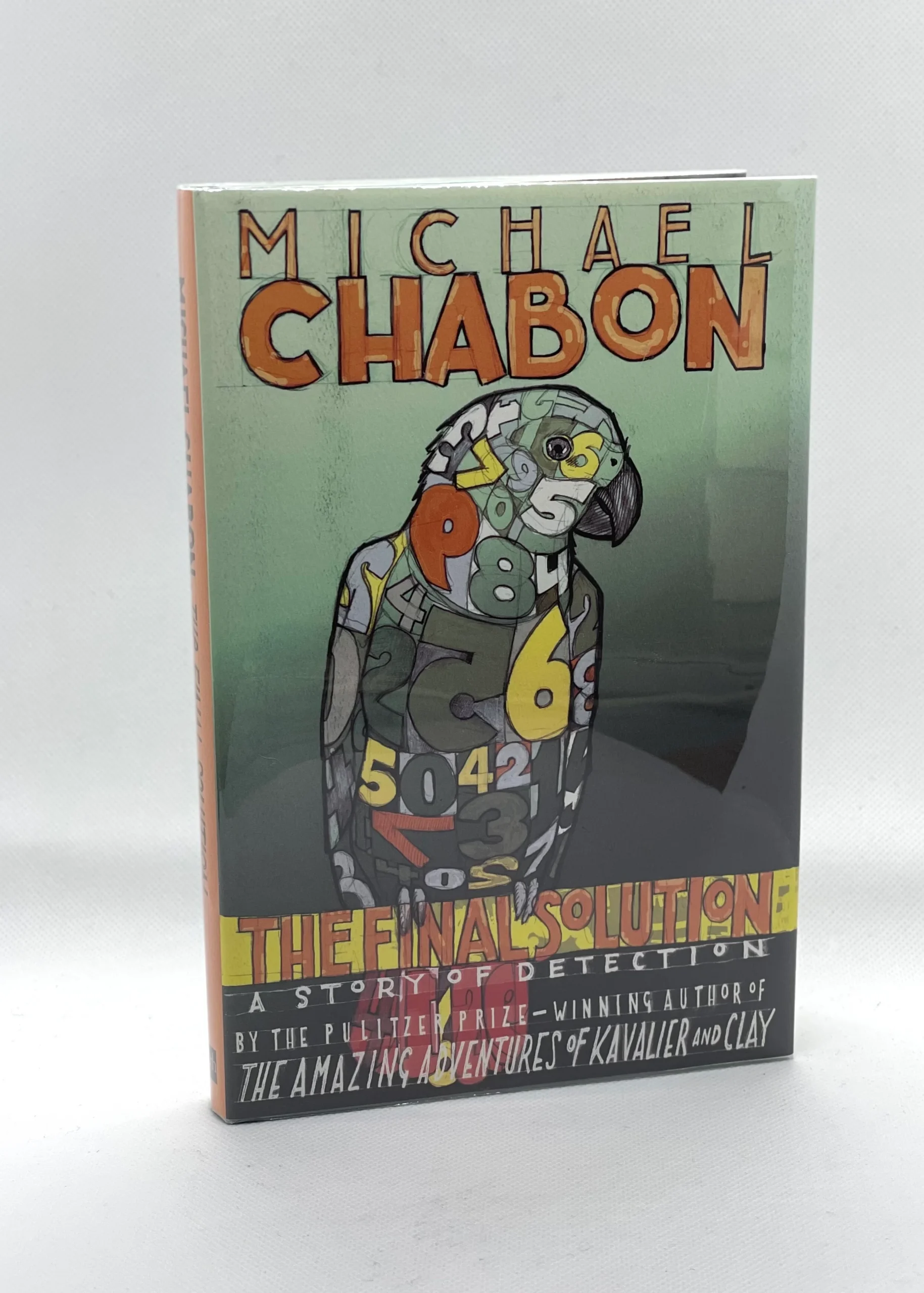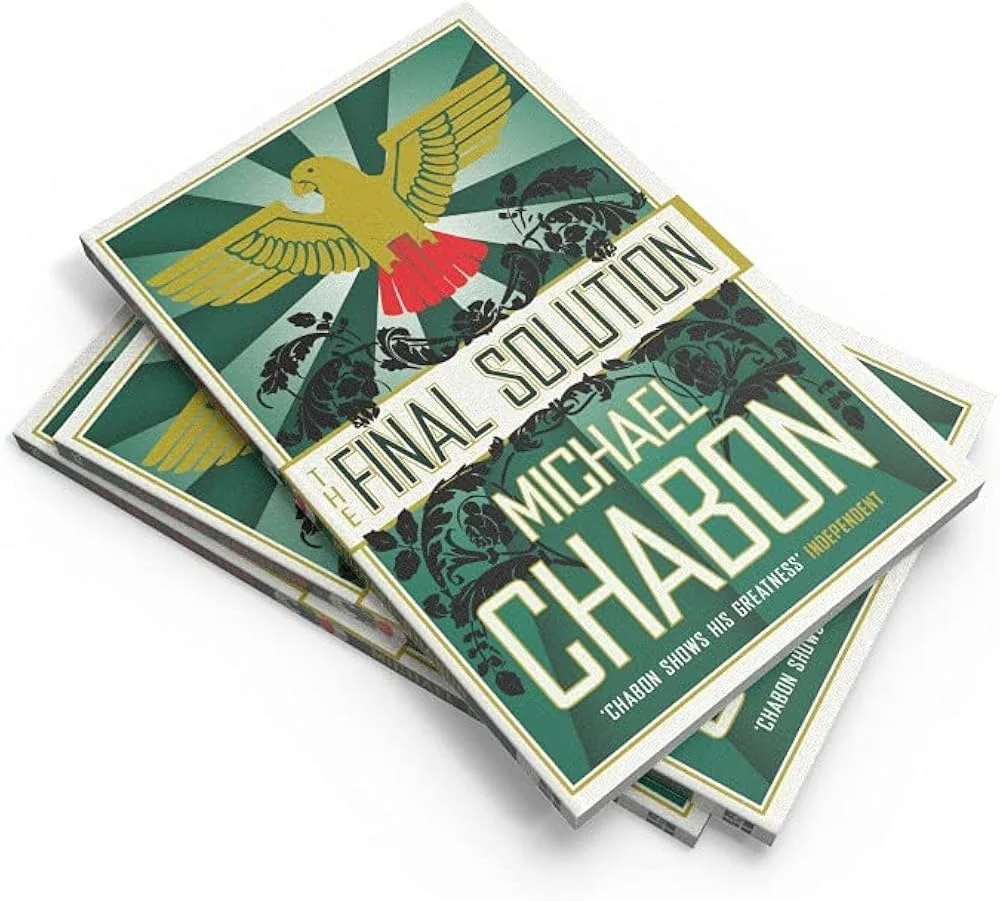As a longtime fan of detective fiction, I was thrilled to discover Michael Chabon’s “The Final Solution” during a recent trip to my favorite bookshop. The slim novella caught my eye with its intriguing title and promise of a Sherlock Holmes-inspired mystery set against the backdrop of World War II. I couldn’t resist the allure of this unique blend of genres and eagerly dove in.
From the very first page, I was captivated by Chabon’s exquisite prose. His ability to paint vivid scenes with words is truly remarkable. The opening description of the elderly detective observing a young boy and his parrot immediately transported me to the English countryside of 1944. I found myself completely immersed in this world, feeling the weight of history and the melancholy atmosphere that permeates the story.
The central mystery revolving around the German numbers recited by the parrot is cleverly constructed. It provided just enough intrigue to keep me turning pages, but I quickly realized that the true heart of the story lay elsewhere. Chabon masterfully uses the detective story framework to explore deeper themes of loss, trauma, and the limits of human understanding in the face of unimaginable horrors.
One of the novel’s greatest strengths is its portrayal of the aging detective, whom we can safely assume is Sherlock Holmes in his twilight years. Chabon’s depiction of this iconic character grappling with the physical and mental challenges of old age is both poignant and respectful. There’s a particular scene where the detective struggles to climb a flight of stairs that left a lasting impression on me. It beautifully illustrates the contrast between his still-sharp mind and his failing body.
The relationship between Linus, the mute Jewish refugee boy, and his African grey parrot is another highlight. Chabon manages to convey the depth of their bond and the trauma Linus has endured without resorting to heavy-handed exposition. The parrot serves as both a mystery to be solved and a symbol of the boy’s lost innocence and homeland. This subtle approach to addressing Holocaust themes through an unconventional lens is both thought-provoking and emotionally resonant.
While I thoroughly enjoyed “The Final Solution,” I must admit that its brevity left me wanting more. At times, I felt that certain characters and plot threads could have benefited from further development. However, I recognize that this conciseness is also part of the novella’s charm, allowing Chabon to maintain a tight focus on the core themes and atmosphere.
Chabon’s writing style is a joy to read. His prose is rich and evocative without becoming overwrought. There’s a musicality to his sentences that I found myself savoring, often rereading passages simply to appreciate their construction. One line that particularly struck me was: “The old man had always known that the world was a great machine of signs, and that to read them properly was the art and science of his profession.” This encapsulates both the detective’s worldview and the broader themes of the novella so beautifully.
Reading “The Final Solution” prompted me to reflect on the nature of evil and the limitations of rational thought in comprehending it. The elderly detective’s struggle to make sense of the horrors of the Holocaust through his usual methods of deduction serves as a powerful metaphor for our own attempts to grapple with such incomprehensible events. It’s a reminder that some mysteries can never be fully solved, and that empathy and human connection are often more valuable than cold logic.
I would wholeheartedly recommend “The Final Solution” to fellow readers, particularly those who appreciate literary fiction with elements of mystery. It’s not a conventional detective story, and those expecting a straightforward Holmes adventure might be disappointed. However, for readers willing to engage with its deeper themes and savor its beautiful prose, it offers a richly rewarding experience.
Chabon’s novella has reignited my interest in exploring more works that blend genre fiction with literary depth. It’s a testament to the power of storytelling to shed new light on historical events and prompt us to examine our own understanding of the world. “The Final Solution” may be a quick read, but its impact lingers long after the final page is turned.